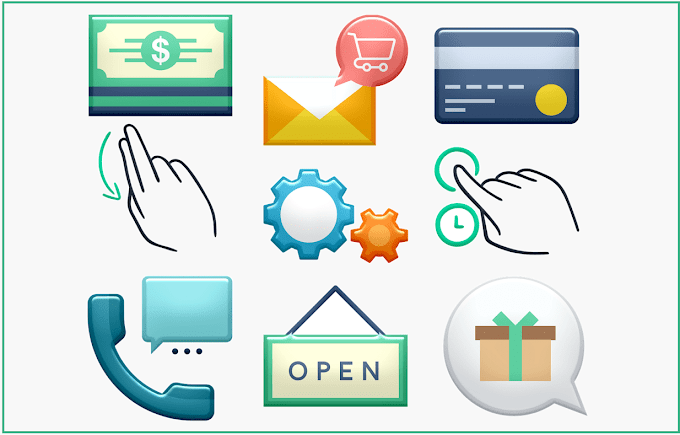
Recently, the modern world has experienced a great deletion of limits and boundaries. Such a step is closely associated not only with the foreign policy of countries but also with local businesses. Now every individual regardless of the place of living may obtain all the needed services for life on the planet. It is needed to regulate these relations between the global organization and people so that they make appropriate standards and rules.
Current educational norms dictate that children with any disabilities have the right and therefore opportunities to explore their potentials should be available. They should be allowed to take part in assessing of particular level of education and basis as children that do not possess any disabilities; they are not to be subjected to any form of discrimination.
Opportunities for learning should be provided to learners with extra needs so that they can be socially active and engage in activities just like the school children having no disabilities can. A lot of challenges could be faced by principals together with lecturers when faced a new task of equipping extra needs students to have rich, complete education experience. Luckily, Integrated-co-Teaching (ICT) provides students with extra needs the way of being less-dependent as well as to succeed in extra activities and academic activities.
Who are students with special learning requirements? These are students who require additional support and help in the learning and educational process. It includes students with autism, learners having a hearing impairment, pupils that have an emotional disturbance, pupils with speech impairment, schoolboys with intellectual disability, students with multiple disabilities, schoolboys with developmental delay, learners with orthopedic impairment and schoolboys with other health issues.
There are a lot of challenges for students with extra needs such as:
• Decreased efficiency in participating in activities, easily fatigued and exhausted, challenges in trying to concentrate
• Difficulty or inability to see a teaching material in a generally accepted way
• Significant gaps in understanding and knowledge
• Decreased communication abilities
• Decreased social activities
• Low motivation level and a sense of having a bleak future
• Heightened anxiety, emotional insecurities, and vulnerability
Unfortunately, statistics show that there is a lack of professional lecturers and this number is significantly decreasing because of different aspects, such as poor salaries and labor intensity needed for a task. Hence, advanced ICT totally helps in this regard.
Contemporary institutions employ various cutting-edge technology for educational studying and hands-on practices. Such examples include:
• Readers of screen
• Light signals
• Alternative keyboards
• Magnifiers of screens
• Pads and different joysticks
• Sip-and-puff systems
• Braille embossers plus braille display
• Recognition of software (Keyboards with Bluetooth PCB, fingerprint scanner, etc.)
Special technology enables the possibility of any single student setting him free of the permanent requirement of direct teacher supervision. Allowing the student to pick the way of studying, which is most suitable for his needs that ensure harmonized studying experience.
These are myriads of solutions that ICT can assist students with extra needs. For instance, some disabilities do not allow the student to make use of handwritten text, and this serves as a very integral part of the traditional studying process. The use of technical equipment and tools designed for the necessary speech recognition avoids the need to use paper and pens during training. Such technology will also be helpful in the process of learning for school children that have disabilities that do not allow them to process and understand virtual information correctly.
Augmentative communication tools assist students with speech disorders in surmounting the communication barriers, and such systems employ the use of tools such as papers, graphs, diagrams, and personalized laptops making available different functions and aspects that will ensure stable and appropriate cooperation. There are special screen reader applications that allow students with visual impairments to use a computer along with a braille keyboard. Word processing software possesses particular attributes that make it a useful learning tool for students with special needs, for example, studies have shown that many students point that it “makes it easier to produce readable and clean text for my homework, and also improves the ease of writing text.”
To a considerable extent, an urgency of teaching pupils under extra learning capacities gives a hand to an issue of remote learning. This is possible to expand and explore the boundaries of the universe encompassing these students, making available tools for this. It sufficiently creates it feasible to understand the individual properties and characteristics of each child, teaching the child becomes more personalized.
Now, we have various types of remote studying with distinguished educative trends; multimedia technologies, application of video conferencing, employing IS (forums, email, newsgroup, and cutting-edge blogs). A lot of available online services are specialized for assistant educational purposes, and they can serve as helpful tools to assists special students. Modern technical development allows students to reconstruct the necessary materials that people receive in accordance with their specific needs.
An online classroom enables learners and lecturers to make use of needed e-books in remote learning. Free access to these vital teaching aids makes it possible for any learner to work not only in the classroom but also independently during assignments.
Usage of ICT in extra education plays an important role in overcoming the stops for students with special needs provided them being equipped with educational programs that will help boost their academic confidence. Accurately created and useful software allows students with additional needs to get modern education and have access to the necessary and relevant information on the Internet. The advent of modern technology has made it possible for lecturers to use the goals or needs of each student with minimal or no effort and chose one of the many educational tactics that were developed and structured to meet the needs of each student with an additional need.




![Performance Marketing - What Is it & How It Works [+ 6 Tools You Can Use]](https://blogger.googleusercontent.com/img/b/R29vZ2xl/AVvXsEj0akcIPU36HHfqWoYrb2LCMNG8OvxPb9drUYKWJZvSXmfbJG0OrjN5jfzTFDmT-9MKcuZt-G-66PiLlIVjgX1DwCNzHeIMW0pjW7W3IB2rZYzx4ISbL2T6JC4M38eubqHxQ3e71l2_n7oxh2f2QdV3d1prJ6z9HQNsSyfjtO18diLxEZg-5wD-I6RINFY/w680/performance_marketing-min.png)





0 Comments